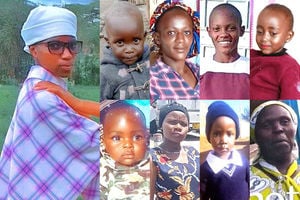Ruto group to question Hague trials
Whether three of Kenya’s post-election violence suspects should be tried at at the International Criminal Court will dominate Thursday's confirmation of charges hearings.
The suspects, Eldoret North MP William Ruto, his Tinderet counterpart Henry Kosgey and radio presenter Joshua arap Sang, will use the proceedings to argue for local trials.
The submissions will come just 48 hours after the Kenyan Government’s appeal on its admissibility challenge was rejected by a five-judge bench. The suspects have previously supported the government efforts but have maintained that they would raise individual challenges.
Lawyers for Mr Ruto, Mr Kosgey and Mr Sang will each have an hour to tell the Pre-Trial Chamber why their clients should not be tried at The Hague. Prosecutor Luis Moreno-Ocampo will have half an hour to respond to the submissions by the defence and give reasons why the case must go on.
The Defence of Mr Ruto and Mr Sang has indicated in their observations that it intends to challenge both jurisdiction and admissibility while Mr Kosgey’s lawyers have declared to address the court on jurisdiction.
The suspects will demonstrate to the court that the Kenya is investigating them for the alleged crimes. The three have been questioned by the Criminal Investigations Department (CID) officers.
The government had attempted to provide an updated report on the ongoing investigations on the Ocampo Six but both were rejected by the two Chambers on the basis that it was part of the initial application.
The applications on jurisdiction and admissibility were to be filed at the court not later than Tuesday, August 30. Failure to file the applications, the chamber will reject any arguments related to the matter when it kicks off the hearings Thursday.
The Kenyan Government had moved to the Appeals Chamber after the Pre-Trial Chamber II threw out the challenge arguing that the government had not demonstrated that it has ongoing investigations against the Ocampo Six. The decision was upheld by the Appeals Chamber on Tuesday.
Presiding Judge Daniel David Ntanda Nsereko said that no legal, factual or procedural error could be discerned in the Pre-Trial Chamber’s decisions of May 30. He explained that, for the cases to be inadmissible, a national investigation must be ongoing and must cover the same individuals and substantially the same conduct as alleged in the proceedings before the ICC.
“Even though the Pre-Trial Chamber could have first decided on the Request for Assistance and then on the Admissibility Challenge, it was not obliged to do so. For the determination of the Admissibility Challenge, the question revolved around whether, on the available evidence, the case against the three suspects was being investigated by Kenya,” the Appeal Judges rules.
The Appeals Chamber also considered that the Pre-Trial Chamber made no error when it found that the Government of Kenya had failed to provide sufficient evidence to substantiate that it was investigating the six suspects for the crimes alleged in the summonses to appear issued for them.
In Prosecutor versus Katanga in 2009, the ICC rejected an application by the accused challenging admissibility. The ICC decided that the failure to investigate and to prosecute on the part of the Democratic Republic of Congo rendered a case admissible before the Court.
Under Article 19 of the Rome Statute the application challenging admissibility can only be made once. It must be made prior to or at the commencement of trial.
In exceptional circumstances the Court may grant leave to be brought more than once and or given the commencement of the trial this challenge can be made by the State after the confirmation of the charges before the Trial Chambers, or before the confirmation of the charges at the Pre-Trial Chambers.




